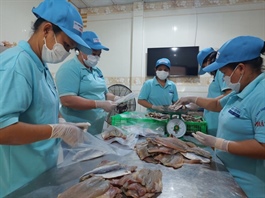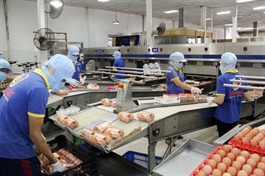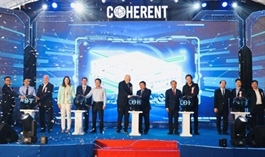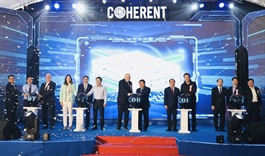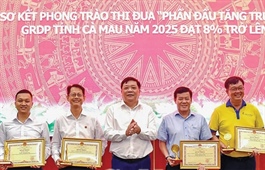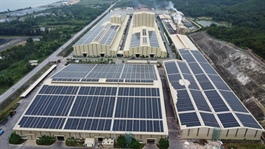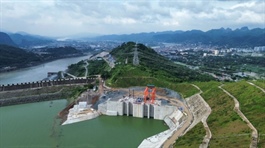Criteria is clear to ensure value in Vietnam’s rooftop solar power
Criteria is clear to ensure value in Vietnam’s rooftop solar power
With rooftop solar emerging as a critical tool for Vietnamese manufacturers to meet global green supply chain demands, Pham Dang An, deputy general director of Vu Phong Energy Group, told VIR’s Nguyen Thu that the race is now on to resolve financing, policy, and storage barriers.
The rooftop solar segment is seeing growing opportunities. However, what are the key challenges that still need to be addressed?

Pham Dang An, deputy general director of Vu Phong Energy Group |
Rooftop solar for self-consumption has shifted from being a secondary option to becoming an essential strategic asset, especially for export-oriented manufacturers. The EU’s Carbon Border Adjustment Mechanism is pushing Vietnamese exporters to decarbonise or risk losing market access, while domestic policy is moving in the same direction with more assertive environmental tax reforms and a firm commitment to net-zero.
In this context, rooftop solar is no longer just about saving on energy bills – it is a prerequisite for aligning with global supply chain standards and enhancing brand reputation.
However, several challenges remain. Financing continues to be a major bottleneck; most factories cannot finance multi-megawatt rooftop systems from their own capital. While zero-capex or energy-as-a-service models help shift the upfront investment burden to developers like Vu Phong, the long-term bankability of these models still depends heavily on having predictable, long-term regulatory frameworks.
Another key area is battery energy storage, which is vital to unlocking the full value of rooftop solar. Yet, scaling this segment requires three foundational pillars: high-resolution analytics for managing charge and discharge cycles, clear rules governing ownership and residual value of batteries, and a financing framework that recognises storage as critical infrastructure.
What should manufacturers look for in energy partners to ensure bankable contracts, policy risk protection, and verifiable green power access?
The upcoming direct power purchase agreement (DPPA) regime is set to reshape Vietnam’s clean energy landscape by allowing renewable energy producers to sell directly to large power users, moving away from the current single-buyer model. Vu Phong has been preparing to support manufacturers in taking full advantage of this new structure.
Firstly, we are fast-tracking two solar-plus-storage projects with a combined capacity of about 150 MWp, strategically designed to match the expected demand from export-oriented factories. These projects are scheduled to become operational in the third quarter of 2026, aligning perfectly with the expected rollout of the national DPPA framework.
Secondly, our energy-as-a-service team is developing tiered contract offerings that provide fixed, levelled electricity prices below projected grid tariffs, while also giving clients the option to include green features like bundled international renewable energy certificates and certified carbon offsets.
Thirdly, we are managing risks by negotiating long-term VND-denominated financing with local banks and international financial institutions, thereby reducing foreign exchange risk for Vietnamese companies. We are also collaborating with insurers to provide protection against power curtailment and regulatory changes throughout the lifespan of the assets.
Finally, Vu Phong is implementing a blockchain-based metering platform to offer real-time visibility into energy generation, consumption, and REC issuance. This ensures traceability and supports environmental, social, and governance (ESG) reporting and compliance with EU regulations.
With a growing number of companies both local and foreign offering rooftop solar solutions, what are the key criteria that manufacturing enterprises should consider when selecting engineering, procurement, and construction or installation partners?
When selecting, manufacturing firms should focus on six main criteria to ensure long-term value and regulatory compliance.
Firstly, a bankable track record is essential; companies should prioritise partners that have completed multiple industrial-scale rooftop systems above 10MWp and can provide at least two years of audited performance data.
Secondly, strong engineering capabilities and a commitment to safety are critical. This includes in-house expertise in solar simulation tools, structural assessments, and lightning protection.
Thirdly, the quality and origin of components matter. Manufacturers should insist on Tier-1 equipment suppliers and long-term product and performance warranties, as well as access to local spare parts.
Fourthly, integrated operations and maintenance services with 24/7 monitoring and predictive maintenance should be non-negotiable. Ideally, the partner should also offer cloud-based dashboards with API connectivity to support ESG and regulatory reporting.
Fifthly, financial strength and contract flexibility are important, especially for projects using zero-capex or DPPA structures. A capable partner must be able to post performance bonds, handle policy-change risks and provide access to competitive funding.
Finally, regulatory fluency and grid integration expertise are essential in a fast-evolving legal environment. Partners with active working relationships with Vietnam Electricity and provincial authorities can streamline the permitting process and future-proof systems for battery or DPPA upgrades.
- 11:51 29/07/2025



